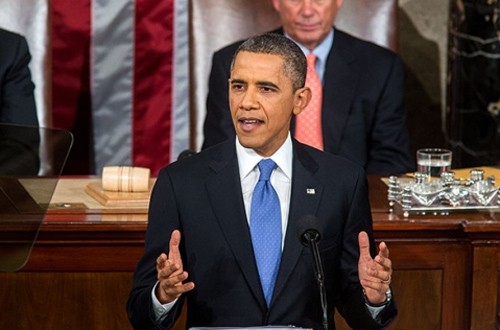
Official White House Photo by Chuck Kennedy
A fresh call to cut Medicare payments for prescription drugs in US President Barack Obama’s State of the Union (SOTU) address has prompted a swift rebuke from the country’s pharma industry.
Obama reiterated calls to reform Medicare in the first SOTU address of his second term, saying that healthcare costs are the biggest driver for the US’ escalating levels of debt, and pledged to “reduce taxpayer subsidies to prescription drug companies and ask more from the wealthiest seniors”.
The US’ $2.8trn annual healthcare spend was at the heart of the President’s comments relating to reducing the US budget deficit, and he said he was committed to “modest reforms”, which also included changing the way the government pays for Medicare.
“Medical bills shouldn’t be based on the number of tests ordered or days spent in the hospital; they should be based on the quality of care that our seniors receive,” said Obama, asking both Democrats and Republicans to come to the table with additional reforms.
The Pharmaceutical Research and Manufacturers of America (PhRMA) reacted swiftly to the address, saying the President was proposing to “upend the successful Medicare Part D prescription drug programme by imposing government price controls”.
The pharma industry agreed to pass on around $80bn of fees and discounts for Medicare Part D in 2009 and 2010, in return for assurances that the federal government would not leverage its purchasing power to force price cuts on medicines and a block on parallel imports of drugs from Canada.
Medicare Part D focuses on providing health insurance for people on low incomes for a modest fee – currently around $30 per month for seniors according to the PhRMA – and in the past Obama has tried to introduce mandatory rebates for drugs prescribed to Part D beneficiaries.
“Part D is now 45 per cent below the cost originally expected, and last week, while reducing Part D’s 10-year projected cost by over $100bn for the third consecutive year, the nonpartisan Congressional Budget Office pointed out that Part D is the single biggest factor responsible for lower Medicare spending projections,” said PhRMA senior VP Matthew Bennett.
“Analysts have projected that the President’s scheme would harm Part D’s competitive dynamics, yielding higher premiums, more restrictive access to medicines, and diminished research on the next generation of medicines,” he added.




